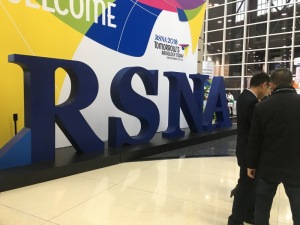by
John W. Mitchell, Senior Correspondent | December 10, 2018
Physicians at Montefiore Health System are leveraging operational artificial intelligence to save lives and improve outcomes.
Discussing the hospital's approach at RSNA 2018 last week, Dr. Parsa Mirhaji highlighted a case study on the initiative and said the organization had no other choice but to deploy the power of data to achieve needed efficiency, cost savings and better outcomes.
“How can a really large health system serving a diverse population adopt these (AI) practices?” the chief technology officer and director of the health system's Center for Health Data Innovations asked the audience. “How can we adopt a continuation of care without being bound to build 200 different systems? The hospital can’t pay to build all these pipelines.”



Ad Statistics
Times Displayed: 49646
Times Visited: 1408 Ampronix, a Top Master Distributor for Sony Medical, provides Sales, Service & Exchanges for Sony Surgical Displays, Printers, & More. Rely on Us for Expert Support Tailored to Your Needs. Email info@ampronix.com or Call 949-273-8000 for Premier Pricing.
The answer was to build PALM – Patient-Centered Analytical Learning Machine – which Mirhaji calls a scalable architecture for AI, which is run with Intel Xeon Scalable processors.
The PALM alert notifies clinicians via a Best-Practices Advisory (BPA) when a patient reaches a risk threshold, based on a review of 40 data points every four hours. The BPA recommends a set of protocols to the attending physician that, if carried out within 24-48 hours, is expected to save lives.
The platform seeks out and imports various data files of outpatient information from all platforms and operations across the 14-hospital system in the Bronx, including images, voice and sensor inputs. Embedded within the PALM brain is a data system to define and link more than 2.5 million terms.
The first application has been used at three of the hospital's locations so far to predict patients at risk for respiratory failure, a condition that up to 50 percent of patients are known to die from within six months of the event. About 35 percent of inpatients who develop the condition do not live long enough to be discharged from the hospital, according to an Intel report.
“Our goal is to build an analytic system that optimizes itself,” said Mirhaji, referring to the long-term learning achievable though AI. “We want to open a window into AI’s mind to understand why it works...”
Tapping PALM for a compliance reporting project has led to a pilot to detect the earliest signs of sepsis in patients. Other plans for its use include effectively routing patients to the most appropriate care, predicting appointment no-shows, and forecasting and allocating hospital beds to more efficiently house patients and reduce their lengths of stay.
Funding for the system was provided through grants.
Back to HCB News

